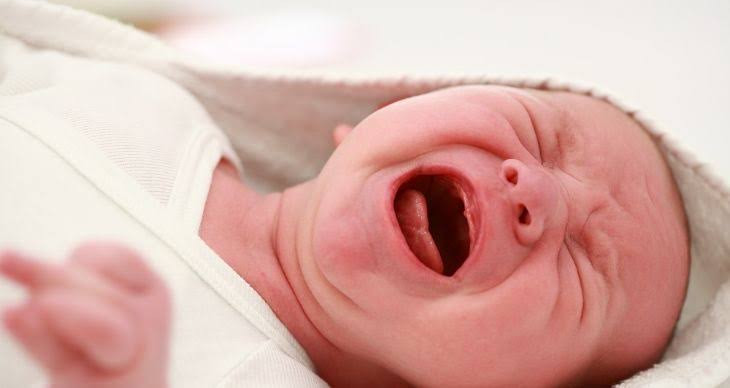Definition
Paralytic ileus is a condition in which the muscles responsible for propelling food through the digestive tract cease to contract. This issue arises from a functional disturbance in the muscles and nerves of the digestive tract. Paralytic ileus exhibits symptoms similar to those of obstructive ileus. The key distinction lies in obstruction ileus, where various factors such as hernias, post-operative scar tissue, tumors, or twisted intestines impede the normal movement of food.
In the case of paralytic ileus, paralysis affects the intestine, where the nerves responsible for transmitting signals to the muscles to contract become impaired. As a result, the small intestine loses its ability to contract and effectively digest food, leading to the accumulation of food, liquid, and gas in the digestive tract. Prolonged retention of food in the digestive tract gives rise to symptoms such as constipation, bloating, and excessive flatulence.
Causes
Consumed food undergoes a breakdown into smaller structures to facilitate digestion and absorption in the intestine. This absorption process is intricately linked with the peristaltic movement, which is the rhythmic contraction of the intestine. In paralytic ileus, the normal peristaltic movement is disrupted, leading to inadequate absorption of digested food. The accumulation of unabsorbed food results in the buildup of excessive gas, causing the previously mentioned symptoms. This condition is referred to as ileus.
Ileus can also occur following a surgical procedure. Typically lasting for 2-3 days, the return to normal function varies across different parts of the digestive system: small intestine (0-24 hours after operation), stomach (24-48 hours), and large intestine (48-72 hours).
Various factors contribute to paralytic ileus, including:
- Surgical Procedures:
The operation, particularly in the abdominal area, is the most common cause of paralytic ileus. While abdominal surgeries are frequent culprits, other operative procedures can also induce this condition. A 2015 US research study highlighted paralytic ileus as the leading cause of rehospitalization within 30 days post-operation.
- Inflammation:
Inflammation in the abdominal area can disrupt intestinal function. This inflammation may result from local irritation or infections such as appendicitis, pancreatitis, diverticulitis affecting small bowel pockets, and other inflammatory conditions.
- Medications:
Certain medications, including anticholinergic drugs for Parkinson's, opioids or potent analgesics, antidepressants, and phenothiazines, can impede intestinal movement, leading to paralytic ileus.
- Electrolyte Imbalance:
Paralytic ileus can be triggered by an imbalance of electrolytes in the blood, such as hypokalemia (lack of potassium), hypocalcemia (lack of calcium), hypomagnesemia (lack of magnesium), and hypophosphatemia (lack of phosphorus).
- Other Medical Conditions:
Various health conditions, including kidney failure, pneumonia, heart attack, hypothyroidism, mesenteric artery ischemia (blockage of arteries supplying the digestive system), and spinal cord trauma, can also be associated with paralytic ileus.
Risk factor
Several risk factors can elevate the likelihood of developing paralytic ileus, including:
- Abdominal surgery history
- Other medical conditions on the digestive tract (e.g., Crohn's disease, diverticulitis)
- Sepsis that damages organ systems
- Radiation exposure to the abdominal area
- Peripheral artery disease
- Aging
- Rapid body weight loss
- Electrolyte imbalance
- Opioid analgesic usage
Symptoms
Symptoms of paralytic ileus typically manifest for a duration of 24 to 72 hours. The majority of these symptoms are associated with the digestive tract system and may include cramping or fullness in the abdomen, loss of appetite, inability to pass stool or gas, nausea, vomiting, and bloating or swelling of the stomach.
Diagnosis
The physician will conduct a thorough inquiry into the symptoms and their onset, including a detailed history of any abdominal surgeries. It is crucial to ascertain whether the ileus is caused by functional issues or mechanical obstruction that might impede the passage of food through the intestine.
During the physical examination, the physician will listen for abdominal noises. Since food cannot move effectively, peristaltic sounds may not be audible. Additional examinations for this condition may include:
- Abdominal X-ray: This helps visualize trapped gas or other potential causes of obstruction. However, X-ray imaging may not provide a clear depiction of the ileus condition.
- CT Scan: CT scans offer more detailed imaging than X-rays. The results aid in pinpointing the location of the ileus. In certain cases, contrast may be injected or ingested before the CT scan for enhanced clarity.
- Ultrasound (USG): USG is a non-invasive procedure, making it safe for use, especially in children.
- Barium Enema: In some cases, this procedure involves the injection of air or barium sulfate from the anus. The process is observed through X-ray imaging.
- Electrolyte Examination: To identify if electrolyte levels in the body are lower than normal, which can be a contributing factor to ileus.
- Blood Examination: Checking for signs of anemia or infection by assessing hemoglobin levels and the count of white blood cells.
Management
The doctor may recommend several measures to manage ileus effectively:
- NPO (Nothing Per Orally) for 24-72 Hours: Patients are advised to refrain from consuming food or drinks orally during this period to allow the intestine to rest. Additionally, the doctor may reduce or discontinue opioid analgesics or other medications suspected of causing ileus.
- Intravenous Fluids or Drugs: Intravenous intake is administered to correct electrolyte imbalances.
- Decompression: To alleviate gas or fluid accumulation in the intestine, a tube is inserted through the nose or anus to reduce internal pressure.
- Elevated Position: Maintaining an upright position can facilitate the flow of food, particularly for patients lying on their backs for extended periods.
- Surgery (Considered in Persistent Cases): While surgery is generally not the first choice, it may be considered if the ileus does not show improvement.
- Parenteral Nutrition: If patients cannot tolerate oral food and experience vomiting, parenteral nutrition may be recommended.
- Prokinetic Drugs: Medications that stimulate peristaltic movement and enhance digestive tract function may be prescribed.
The management of ileus is tailored to address the underlying cause. Managing infections, correcting electrolyte imbalances, and discontinuing causative drugs contribute to effective ileus management. However, these measures may be challenging for patients with sepsis or those on ventilators. In such cases, if oral intake is not possible for a week, parenteral nutrition is recommended.
Complications
Ileus can often resolve on its own after a few days, but in some cases, additional management is required. If left undiagnosed and untreated, ileus can lead to serious complications, including:
- Necrosis or Cell Death: Ileus may result in the death of tissue or cells, leading to intestinal perforation.
- Peritonitis: Untreated ileus can cause peritonitis, an infection of the peritoneal layer.
- Dehydration
- Prolonged Electrolyte Imbalance
- Aspiration: Recurrent vomiting associated with ileus may lead to aspiration
Prevention
Many risk factors for ileus, such as trauma and chronic diseases, are not preventable. If you are undergoing abdominal surgery, it's essential to recognize ileus as a potential complication. While it shouldn't be a reason to avoid surgery, acknowledging ileus as a possible outcome can prompt early detection and treatment, preventing the development of more severe conditions.
In addition, maintaining a diet rich in nutritional foods with balanced nutrition can play a crucial role in preventing electrolyte imbalances, contributing to overall health and potentially reducing the risk of complications like ileus.
When to see a doctor?
Paralytic ileus can resolve spontaneously within a few days. However, it is crucial to consult a doctor if you experience:
- Fever exceeding 38 degrees Celsius.
- Persistent ileus lasting longer than 5 days.
- Unrelieved abdominal pain despite medication.
- Difficulty passing gas and stool.
- Abdominal discomfort hinders your ability to eat and drink.
- Recurrent vomiting.
- Presence of blood from the anus or black, tar-like stools.
- dr Hanifa Rahma
Beach EC, De Jesus O. Ileus. [Updated 2021 Aug 30]. In: StatPearls [Internet]. Treasure Island (FL): StatPearls Publishing; 2021 Jan-. Available from: https://www.ncbi.nlm.nih.gov/books/NBK558937/
Cleveland Clinic Staff. (2021). Paralytic ileus. Cleveland. Available from: https://my.clevelandclinic.org/health/diseases/21853-paralytic-ileus
Watherspoon D. (2021). Paralytic ileus. Healthline. Available from: https://www.healthline.com/health/ileus
Kalff JC. (2021). Postoperative ileus. UpToDate. Available from: https://www.uptodate.com/contents/postoperative-ileus
Weledji E. P. (2020). Perspectives on paralytic ileus. Acute medicine & surgery, 7(1), e573. https://doi.org/10.1002/ams2.573












